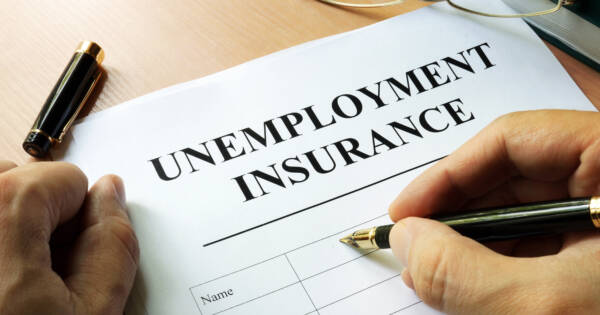Commercial insurance is a generally broad term. It’s used to describe various types of insurance that provide protection from risks associated with operating a business. Commercial insurance has a few other names as well. You will often see it called business insurance or commercial lines insurance. This type of insurance is separate and distinct from your normal personal insurance, like home or auto coverage. So, let’s dig deeper into the question “what is commercial insurance?”
Popular types of commercial insurance include Commercial General Liability, Commercial Property, and Machinery Breakdown. What type of commercial insurance and how much coverage you may need depends on the type and size of the business being insured. In this article, we break down the various types of business insurance. By the end, you’ll have a much better idea of how it works and who needs it.
Popular Types of Commercial Insurance
Among business insurance types, General Liability is the most purchased. This is because it protects businesses from liability claims related to bodily injury and property damage caused on the premises of a business or through its operations and products. It also provides protection against assertions made in advertisements and for personal injury liability. Basically, it provides an all-purpose coverage against most of the common problems that can arise and negatively impact a business.
Introduced in 1986, Commercial General Liability insurance replaced previous “comprehensive” policies. Given the many different types of coverage provided by Commercial General Liability insurance, most businesses in operation today purchase this type of coverage first. For many businesses, Commercial General Liability insurance is the only type of coverage they seek out. Most common business feel it provides all the protection they need.
In addition to Commercial General Liability, business owners also frequently takeout Commercial Property insurance. It provides coverage in the event that physical assets are damaged or destroyed by numerous types of losses. Those losses can include fire, floods, or theft, for example. Business owners who have an operation and commercial property that is separate from their home should consider getting Commercial Property insurance.
How To Purchase Commercial Insurance
Commercial insurance is typically purchased through a licensed and professional insurance broker. They are trained to help businesses assess their needs and then recommend the best type of insurance products to meet those needs. The end goal of any business insurance product is to protect businesses from unforeseen losses due to events that may occur during the normal course of operations.
Commercial insurance can be especially important for small business owners. They should carefully consider and evaluate their business insurance needs. Small business owners often have more personal financial exposure in the event of a loss. If a business owner does not feel they can effectively or accurately assess their business risk, then they should work with a licensed insurance broker. A list of licensed insurance agents can be obtained through a state’s Department of Insurance or from the National Association of Insurance Commissioners.
Other Types Of Business Insurance
There are other types of business insurance available to business owners, in addition to the basic types we already covered. These include the following insurance types.
Home-Based Businesses
Homeowner’s insurance policies generally do not cover home-based businesses in the same way that Commercial Property insurance covers businesses that are separate from the home. Anyone operating a business or commercial enterprise out of their house should inquire about getting specialty insurance to cover that business. This can include coverage for things like equipment, inventory, and liability.
Product Liability Insurance
If your business manufactures products that are sold, then you may want Product Liability insurance. Businesses both large and small can find themselves named in a lawsuit due to damages caused by a defective product. Product liability insurance protects a business and its owners against certain legal actions.
Vehicle Insurance
Any vehicles that are used for business purposes should be fully insured. This is typically separate from personal car insurance. However, if employees of a business are using their own cars for work purposes, then their own personal insurance will likely cover them in the event of an accident. One major exception is if someone is delivering goods or services for a fee. Regardless of the situation, it’s always advisable for a business owner to make sure any vehicle used for commercial purposes is properly insured.
Business Interruption Insurance
Often called Continuation Insurance, business interruption policies are a special type of insurance to help cope with times when a business temporarily cannot operate. This usually requires a physical location, such as a store or manufacturing facility. Business Interruption insurance will then compensate owners for lost income if there is a disruption causing work to be halted. Some example of this are fire, natural disaster, or some sort of government order. It’s worth noting, however, that most common business interruption plans do NOT include coverage for viruses, bacteria, or pandemics. It’s possible to acquire that coverage separately, though.
The Last Word
Commercial insurance is important to have for anyone who operates their own business. Regardless of the size, location, or number of employees, all commercial endeavors should have appropriate insurance coverage. Since there are enough different types of business insurance available, owners can customize their coverage to best suit their needs.
Licensed insurance brokers can help determine what type of commercial insurance is right for any particular business. However, it’s always advisable for business owners to assess their own insurance needs. Purchasing a business insurance policy is one of the best ways a business owner can protect themselves (and their enterprise) from financial damages. Just remember that insurance brokers are ultimately salespeople. Commercial insurance premiums are not cheap. For these reasons, it’s advisable to only take on insurance that is needed. Don’t fall into the trap of over-insuring a business.
 Shutterstock
Shutterstock







